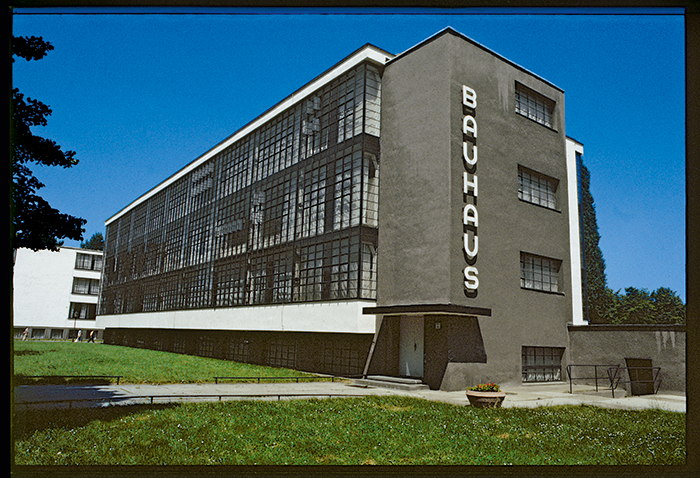
Herbert Bayer, lettering above the main entrance to the Bauhaus in Dessau, 1926. From "Building Blocks of Type"
Machines for living, spaces for breathing, prisms for pondering, even ordinances for beautifying, architecture invites the study of personality and voice, of economics and choice. It asks us to consider art and artifice, to challenge blight and to question ego, to revisit all that’s iconic and seductive, and to reimagine what it means to be utopian, universal, or unique. How does the design of a memorial address tradition, or speak to tragedy? Who determines how we assess scale, or or appreciate shelter? The study of the built environment obliges us to ask penetrating questions about its history and preservation, its function and its future; its capacity for drama, even its correlation with duty. In the end, we’re all complicit in the unfolding of its multi-faceted narrative, a tale colored by ambition and greed, fantasy and productivity, occasional displays of bad taste, frequent evidence of visionary skill, and every so often, the need to channel our inner Marxists. Maybe architecture is less a story of human achievement than a study of human frailty. Now as ever, we shape our buildings. And they shape us.
This look back into our archive is part of our Twentieth Anniversary celebration.

